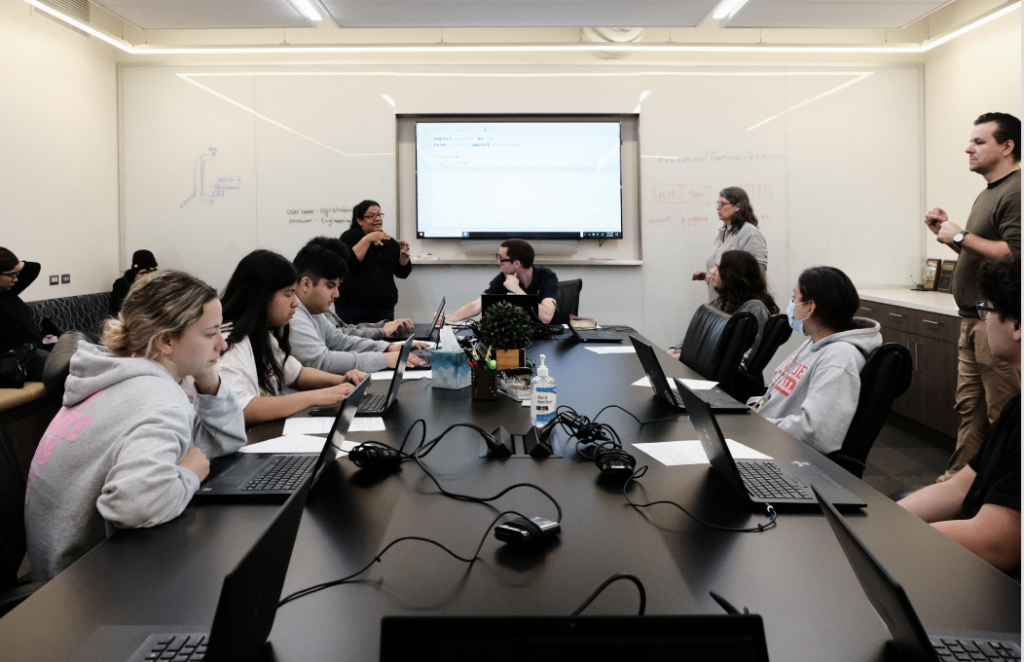
RIVERSIDE, Calif. (BP) – In a first-of-its-kind high school computer coding camp for Deaf students, California Baptist University (CBU) partnered with California School for the Deaf, Riverside, (CSDR) to give 10 Deaf high schoolers the coding knowledge to develop their own video game and to demonstrate that pursuing a degree in engineering is a career choice that can be rewarding on multiple levels.
“I really like technology,” said CSDR junior Darius Zarembka. “I enjoy playing video games, so I was interested in this camp because it’s my first time creating one myself.”
Students sat in awe as Ben Sanders, assistant professor of computing science and data science at CBU, taught coding fundamentals and wrote lines of code on the whiteboard for students to copy. CBU hired American Sign Language (ASL) interpreters and had ASL student volunteers help interpret throughout the two-day camp. By the end, students showed off their new coding skills by demonstrating their video game with a storyline similar to Pac-Man. In their version, a green snake gobbled up red dots to grow bigger and stronger.
“We are thrilled to host these high school students,” said Phil van Haaster, dean of the CBU College of Engineering. “Engineering is a lucrative field with endless career possibilities, and this camp is a fun way to introduce the students to the world of coding and creativity.”
The coding camp for Deaf students was a result of CBU’s commitment to provide opportunities for all students to receive a high-quality education and help them find their purpose. CBU has a Center for Deaf Studies that offers a minor in ASL and is heavily involved with the Deaf community. CBU graduate Kevin Willis, a Deaf pilot and dispatch instructor for CBU’s Aviation Sciences program, stopped by the camp to tell his story and inspire the students to take the road less traveled in life and career.
The college of engineering recognized a need to leverage students and faculty to broaden opportunities for the Deaf community, and thus began a conversation between CBU and CSDR about potential programs for the Deaf community at CBU. This camp was made possible by a gift from donors to fund the first year’s camp and to set up an endowment for future computer science camps with CSDR.
“Deaf people have historically not pursued engineering as a career, but there are a lot of opportunities in engineering, and CBU could play a big role in helping facilitate that,” said the camp donors, who wish to remain anonymous. “CBU is uniquely qualified because it’s a Christian university with a robust engineering program, it’s near CSDR and has a strong Deaf studies program as well.”
With only 22 percent of Deaf people in the United States having completed a bachelor’s degree compared to 37.7 percent of hearing people, camps like the one hosted at CBU provide an important opportunity for Deaf high school students to be inspired to continue learning at the university level.
Erika Thompson, outreach resource specialist at CSDR, said such opportunities are important to “give our students multiple opportunities to explore their interests and excel at their hobbies, which helps shape their future educational and career goals.”













